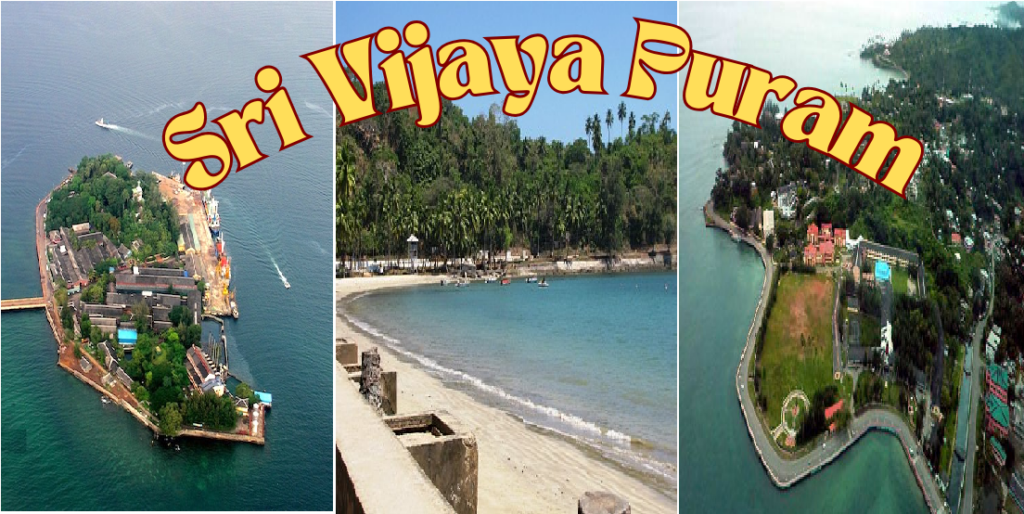
- Historical and Cultural Significance: The renaming of Port Blair to Sri Vijaya Puram reflects India’s attempt to honour its historical legacy, particularly its connection to the Sri Vijaya Empire, which once controlled much of Southeast Asia. It also aligns with India’s decolonization efforts by removing colonial names and showcasing India’s glorious past.
- Geopolitical Strategy: The strategic location of the Andaman and Nicobar Islands in the Indian Ocean makes them crucial for India’s maritime security and defence. Renaming the capital strengthens India’s geopolitical presence and is part of a broader strategy to counterbalance China’s growing influence in Southeast Asia.
- Cultural Diplomacy: The renaming serves as a tool of soft power diplomacy, fostering national pride and emotional connection among the Indian population. It also aims to enhance India’s cultural ties and diplomatic relations with Southeast Asian nations that share historical connections with the ancient Sri Vijaya Empire.
The renaming of the capital city of the Andaman and Nicobar Islands from Port Blair to Sri Vijaya Puram by the Indian government carries deep historical and geopolitical significance. It reflects India’s approach to international relations, historical legacy, geopolitical and geostrategic perspectives, and cultural diplomacy in the evolving global order.
Historical Symbolism
In the context of decolonization, which has been a long-standing demand in India, renaming the capital of the Andaman and Nicobar Islands as Sri Vijaya Puram from Port Blair is a significant step. Union Home Minister Amit Shah stated that the new name reflects the essence of the freedom struggle and the contributions of the islands. The Andaman and Nicobar Islands hold importance not only due to their strategic location but also for their historical significance, with Indian freedom fighters like Vinayak Damodar Savarkar and Netaji Subhas Chandra Bose being imprisoned there. Bose famously unfurled the Indian national flag during his visit to the islands.
The name “Sri Vijaya Puram” is inspired by the great Sri Vijaya Empire, which once dominated much of Southeast Asia. This renaming reflects Prime Minister Narendra Modi’s vision of showcasing India’s glorious past while simultaneously removing colonial vestiges from Indian culture. These actions are in line with a growing consciousness in India to reinterpret history from a postcolonial perspective rather than a colonial one.
Geopolitical Implications
The Andaman and Nicobar Islands hold a strategic position in the Indian Ocean, making them crucial for India’s defence and maritime security. The islands are vital for accessing Southeast Asia and play an essential role in India’s efforts to balance China’s rising influence in the region. Renaming Port Blair to Sri Vijaya Puram not only asserts India’s historical presence in the area but also strengthens its geopolitical stature.
Moreover, this renaming aligns with India’s strategy to enhance its soft power in Southeast Asia. By celebrating its historical connection to the Sri Vijaya Empire, India seeks to renew its ties with countries in the region that share cultural connections with this ancient civilization. This move could foster stronger diplomatic relations and cooperation in various areas, including commerce, security, and cultural exchanges.
Cultural Diplomacy and Domestic Reception
The renaming serves as a powerful tool of soft power diplomacy, resonating with patriotic sentiments within India. It reflects a new trend in Indian politics, where the emphasis is placed on reclaiming history that has deep-rooted connections to native civilization. This move has the potential to foster pride and solidarity among the Indian population, aligning with the government’s domestic agenda.
Conclusion
The renaming of Port Blair to Sri Vijaya Puram symbolizes India’s efforts to reclaim its historical narrative, strengthen its foreign policy, and enhance its cultural diplomacy. This decision not only honours the sacrifices of the nation’s freedom fighters but also situates India within the larger strategic dynamics of the Indian Ocean region. As India continues to assert itself on the world stage, such symbolic gestures will play a critical role in defining its international relationships and fostering internal unity.
Parag Gilada is a Mukherjee Fellow who has recently graduated from the Jindal School of International Affairs with a keen interest in Sports Diplomacy. Views expressed are the author’s own.
